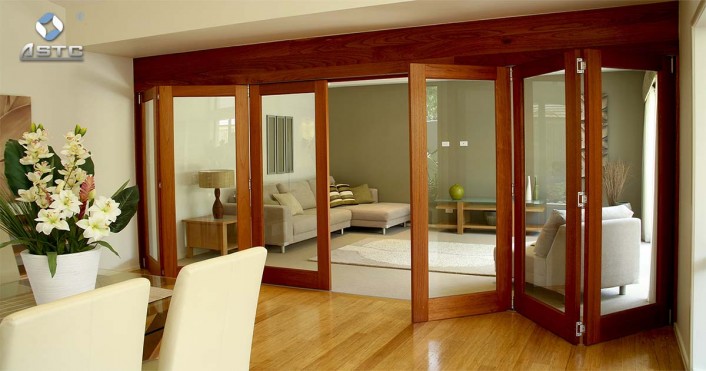What is Different About Door Locking Systems
What is Different About Door Locking Systems and What Makes Them so Unique?
The recent breaches have also brought to the forefront a system that has up until now really avoided the spotlight in a hotel. What is different about a Door Locking Systems to other systems within a hotel and how have things changed over the recent years?
1 The way it is selected.
At an average cost of $200 to $300 (and upwards) per door just for the electronic hotel door lock, one can see how this can be considered as one of the primary system expenditures for the guestroom.
New hotel builds. Electronic door locking systems have traditionally been selected during the construction phase of the hotel. The reason for this is that the doors need to be ordered and prepped for the particular door locks well in advance of the opening of the hotel. Especially for new builds, many times the decision on which system and mifare card lock are chosen is made by the owner/developer and design/construction team. Most of the time the operational personnel who typically use the system (such as front desk, housekeeping, engineering, security and IT) are only brought on board closer to the opening of the hotel. As such, the input from these departments is not factored into the overall locking system selection process.
Renovations or retrofit projects. The other way that door locking systems are usually installed is during a time of a refresh or room upgrade. Due to the cost of the system it is usually incorporated as part of an overall renovation. Again the design team usually has a heavy hand on the overall decision making, and in most cases aesthetics and cost usually win over functionality and proposed security. However, there is the potential for operational, security and IT input into the overall decision making if the ownership group involves the property itself in the project.
2 Purchasing decisions.
There are a number of decisions that typically affect the selection of an electronic door locking system, some of which include:
How long does the ownership intend to own the asset?
A major factor involved in the decision of which locking system to purchase is often influenced by how long the owner intends to keep the property. If they intend to sell the property in the next few years, they may opt to install a less expensive system. If they intend to keep the hotel for the long term, they may be convinced to install a quality system that will last for a long time.
Longevity of the System. When the question is typically posed as to which system has longevity in a hotel, some people may be inclined to point to the PBX, or in some cases the POS system. However traditionally the guestroom electronic card locking system is the system that is replaced the least often. As such, until this recent breach, most hoteliers were not that concerned about having to replace the door locks, so long as they physically worked. That is changing and hotels need to be concerned about the upgradability of the keypad card lock in terms of its networkability and security protocols for integration to other systems.
Level of Security Encryption. One concern to be factored into the selection of locking systems is the level of encryption that the door lock has as part of its security features. Given the length of time hotels are keeping the locks, the hotel needs to be able to update the level of encryption on the locks and system. As was pointed out to me on a number of occasions in recent conversations, one should approach this the same way you update your antivirus software. The level of security needs to be updated regularly to ensure that the latest techniques and protocols are in operation. Given the physical security aspects that are at risk, IT personnel need to be vigilant in ensuring that these systems are equipped with the latest firmware and security encryption available in the marketplace. This should be factored into the overall decision making on the motel locking system of choice.
Integration to Other Systems. In the past, the primary concern was the interface to the PMS. However, door locking systems can also be linked to energy management and room automation systems, among others. As such, their ability to integrate, and in some cases share networks, can be reasons for the selection of a particular system.
Networkable Solutions. In the past, online systems typically meant having to hardwire the locks to the server. These days most card locking system providers offer networkable solutions either through their own proprietary wireless solutions or they are able to integrate into other wireless networks. While this has increased the features and functionality offered with the systems, it has also increased the susceptibility to possible security breaches and caused IT departments to focus on securing the networks and access to these systems. The primary concern being that if the locks can be breached, will this allow access to the hotels secure networks.
Code Requirements. Door locks should meet the fire rating code requirements. In most instances the doors need to be fire rated and the locks may impact the rating to the door. If the locks contain plastic components, the question arises as to whether they are susceptible to melting as a result of the heat and will this affect the ability of a person to open the door and potentially escape a fire. While this has not appeared to have been an issue up until this point in time and most of the locks appear to be code compliant, it may be worthwhile looking into this issue if the hotel is contemplating the replacement of the system.
3 The changing role of the engineering department.
Most of the traditional mechanical key locking systems were controlled by the engineering department. They serviced the locks, replaced the batteries, and in some cases interrogated the locks when required. They were able to do this as the locks were primarily stand-alone devices and had limited interaction with other systems. This has all changed. Today’s RFID networkable door locking systems interact with most key operational departments and are primarily the responsibility of the IT departments.
The result is that the system has become much more than just a locking system, and due to the fact that it typically resides on the hotel’s administrative data network, it means that the system needs to adhere to the same security protocols and requirements as the rest of the applications. For this reason, many locking manufacturers request that the security team, as well as the IT and engineering departments, be involved in the selection process. The question then arises as to whether the hotels are equipped to address the change in roles, given that many hotels no longer have dedicated IT staff onsite to assist with the support of the network and system.

